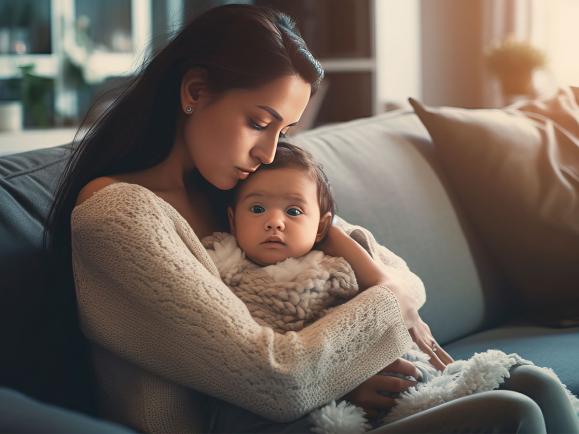
In a new national survey published by the Ohio State University Wexner Medical Center in Columbus, many moms and dads today have found that parenting is challenging their ability to connect with other adults. Anne Helms, the mother of two, shared her experience of feeling lonely at times. I work from home, and when I have video meetings or calls with our employees, it’s very focused on the subject at hand. I don’t get a lot of personal interaction, such as ‘How are you? How’s your family doing?’” said 36-year-old Helms, who lives in Powell, Ohio. “There’s obvious benefits to working from home — it allows me to avoid a commute that eats into my time with my children and husband in the evening,” she said. “But there are some days when my most personal conversation is with my dog.”
According to the new survey, 66 percent of parents said they often felt the demands of parenthood left them feeling lonely and isolated. Nearly 40 percent of parents said they felt as if they had no one to support them in their parenting role. According to Kacey Cardwell, a licensed marriage and family therapist in Atlanta, isolation and loneliness go hand in hand with burnout. Which makes sense, because 62 percent of participants in the study said they felt burnt out by their parental responsibilities. “When parents are feeling lonely and isolated, that tells me their adult needs aren’t being met because they’re pouring what they can into their child. That’s a recipe for burnout,” said Cardwell. “Burnout is not new for parents, but I think the pandemic took it to a totally different level,” she added. “We were expected to be these superhumans that were working and homeschooling their kids without a break.”
Nearly four in five parents say they would value a way to connect with other parents outside of work and home. Although many parents may not want to admit their feelings of loneliness due to fear of sounding like they don't care about their children. Kate Gawlik, an associate clinical professor at the Ohio State University College of Nursing in Columbus who conducted the research, says parents shouldn't feel that way. “We’ve all had the experience of being in a room full of people but not connecting with any of them and feeling alone, right?” she said. “It’s the same with parenting. You definitely are connecting with your children, but it’s a parent-child connection, not a friend-to-friend, family-to-family or spouse-to-spouse connection.”
Anne Helms shared that she joined a positive parenting group that was run by Gawlik that drastically helped her energy as a parent. “It made me feel much less lonely,” she said. “When a parent shared, I would nod my head like ‘Yup, same here, been through that’ or ‘Yes, I’m going through that at this moment.’ And it was just so validating.”

